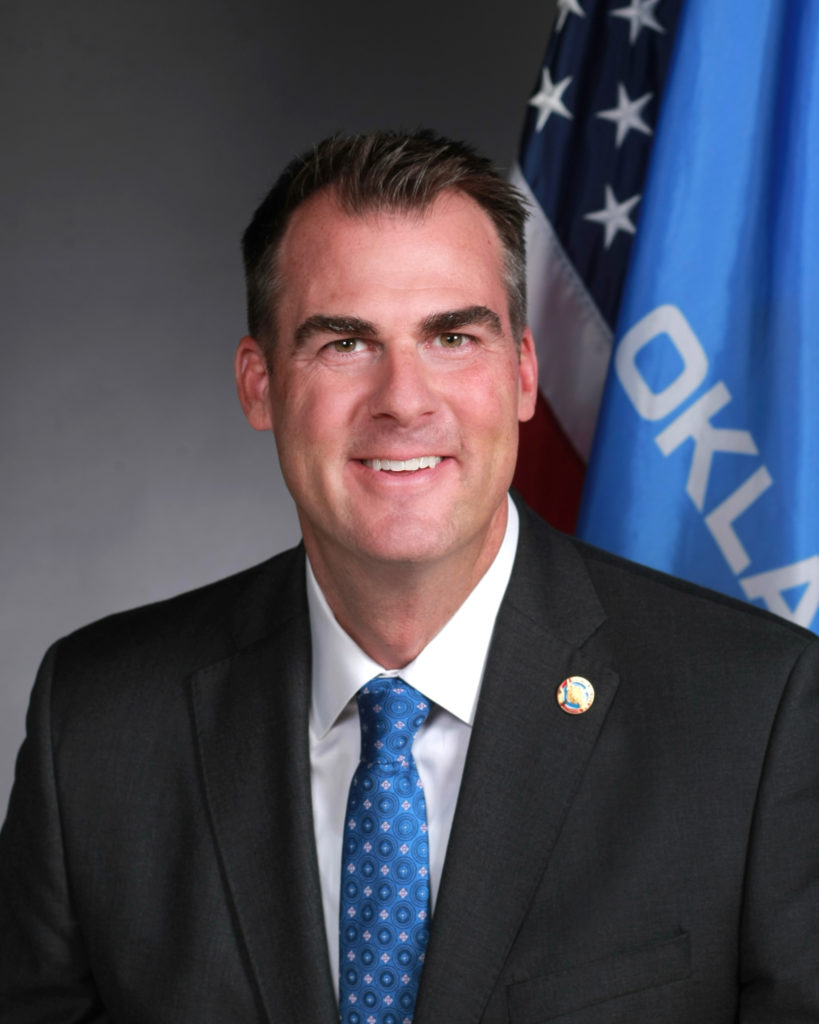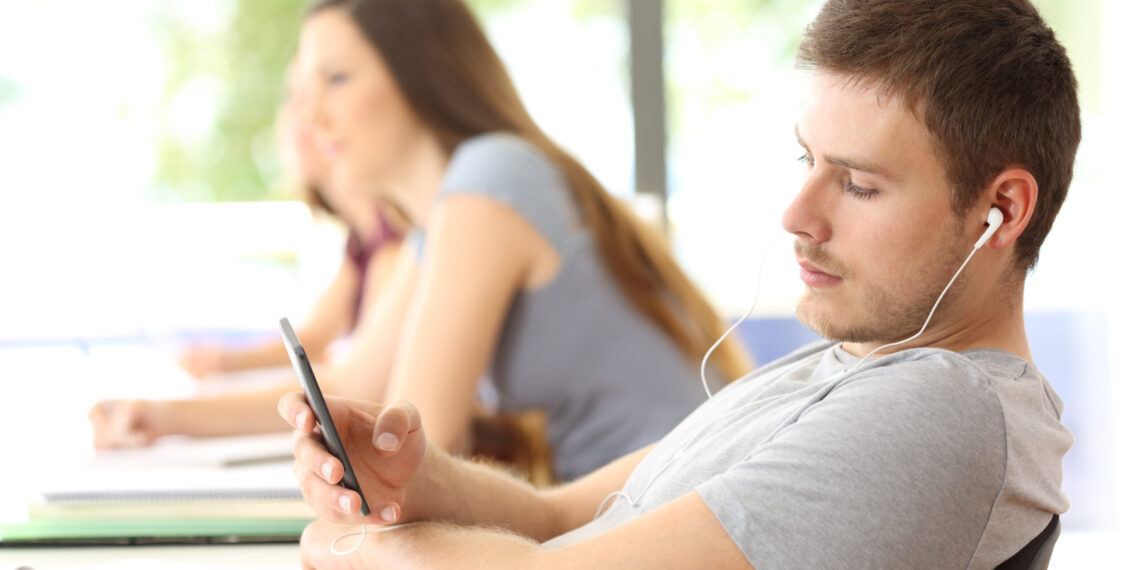OKLAHOMA CITY (OBV) – Gov. Kevin Stitt is calling upon teachers and students to submit ideas on how to make cell phones less of a distraction in schools.

Stitt issued the Oklahoma Phone-Free Schools Challenge on Wednesday, calling upon students, teachers and superintendents to submit solutions for managing cell phone use in schools.
The purpose of the challenge – issued as Executive Order 2024-26 – is to address problems associated with in-school cell phone usage, including distractions from classwork, bullying and learning difficulties.
“Cell phones are useful tools, but far too often, they cause distractions in the classroom. I know we can’t solve a problem like this with a top-down, heavy-handed government mandate,” Stitt said. “I know our students and teachers have the creative and innovative minds to solve this problem in their classroom, so I want to empower them to do just that. That’s why we’re launching the Oklahoma Phone-Free School Challenge.”
The challenge began on Wednesday with Stitt giving students, teachers and administrators until Nov. 29 to submit their ideas, policies, and best practices for cell phone use in schools to the Governor’s Office.
Submissions will be reviewed for inclusion in an Oklahoma Phone-Free Schools best practices report, which will be compiled by Secretary of Education Nellie Sanders and Chief Advisor of Health and Mental Health Ellen Buettner.
“Student attention is being challenged in ways we’ve never faced before,” Sanders said. “Students are enduring a mental health epidemic that can’t be ignored, and we have an opportunity to eliminate one of the driving culprits: cell phones. As we explore the idea of cell phone-free schools, we’ll put student mental health first, approach it with empathy, and take our classrooms back.”
Buettner said she applauds Stitt’s proactive stance on cell phone use in schools.
“By launching the Oklahoma Phone-Free Schools Challenge, we are taking a critical step toward safeguarding students’ mental health and enhancing their educational experiences,” Buettner said. “This effort will provide valuable insight into the impact of cell phones on academic performance and mental health.”
A Pew Research Center survey found that 72 percent of high school teachers in the United States said that cell phone distraction is a major problem in classrooms.
The survey also notes that 33 percent of middle school teachers and 6 percent of elementary school teachers said that cell phone distraction is a significant problem among students.
Numerous school districts throughout the nation implemented cell phone policies, including requiring students to turn off their phones during class or leaving them with administrators during the school day.
Eighty-two percent of K-12 teachers say their school district has a cell phone policy. However, 30 percent of those teachers say cellphone polices are either very or somewhat difficult to enforce.
Stitt’s executive order is shared below.

















